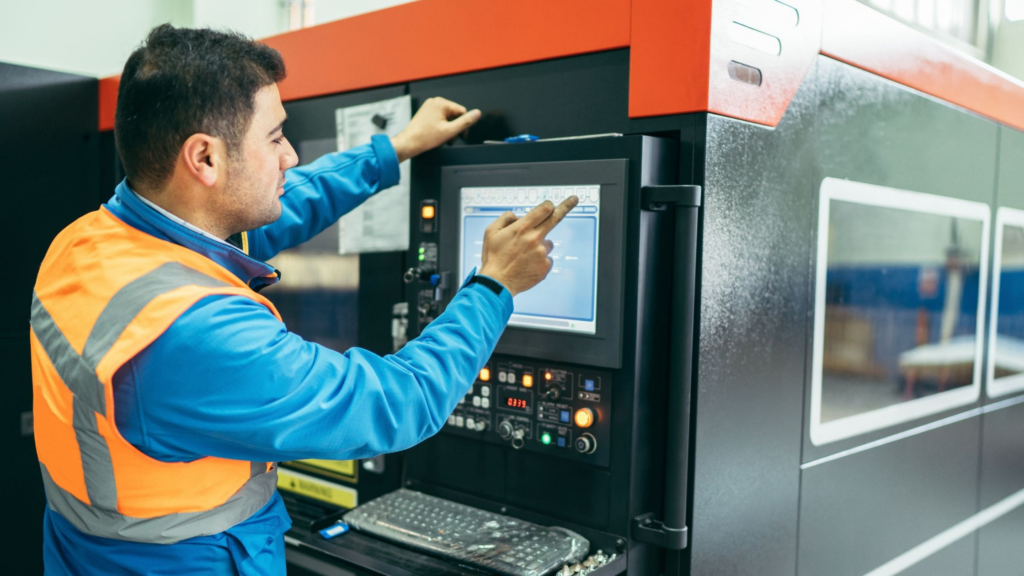
In today’s fast-paced world, technology plays a pivotal role in shaping various industries, and the manufacturing sector is no exception. Numerical Control (NC) technology is revolutionizing the way we produce goods, offering precision, efficiency, and flexibility that traditional methods simply cannot match. This article will delve into the world of Numerical Control technology, exploring its history, applications, advantages, and the exciting possibilities it holds for the future.
Understanding Numerical Control Technology
A Historical Perspective
Numerical Control technology dates back to the mid-20th century when it was initially developed for military and aerospace applications. The primary goal was to automate machining processes, ensuring high precision in the production of complex components.
The Core Principles
At its core, NC technology relies on computerized instructions to control machinery. These instructions are written in a specialized programming language and are often referred to as G-codes and M-codes. G-codes dictate tool movements, while M-codes control auxiliary functions such as coolant flow or spindle speed.
Applications of Numerical Control Technology
Manufacturing Precision Parts
One of the primary applications of NC technology is in the production of precision parts. CNC (Computer Numerical Control) machines can craft intricate components with remarkable accuracy, making them indispensable in industries like aerospace and medical device manufacturing.
Automotive Industry
The automotive industry has embraced NC technology to streamline production processes. From crafting engine components to body panels, CNC machines ensure consistency and quality in every aspect of vehicle manufacturing.
3D Printing and Additive Manufacturing
In recent years, NC technology has extended its reach into the realm of 3D printing and additive manufacturing. CNC-based 3D printers can create intricate prototypes and end-use products with a level of detail that was once unimaginable.
Art and Sculpture
Beyond industrial applications, NC technology has found its place in the world of art and sculpture. Artists leverage CNC machines to bring their creative visions to life, producing sculptures and artworks with unmatched precision.
Advantages of Numerical Control Technology
Unparalleled Precision
NC technology offers unparalleled precision, ensuring that each component or product meets exact specifications. This level of accuracy minimizes waste and enhances product quality.
Increased Efficiency
Automation through NC technology significantly increases efficiency in manufacturing processes. Machines can operate 24/7 with minimal downtime, leading to faster production cycles.
Flexibility and Customization
Manufacturers can easily reprogram CNC machines to produce different components, allowing for rapid changes in production without the need for extensive retooling.
Cost Savings
While the initial investment in NC technology can be substantial, it leads to long-term cost savings through reduced labor costs, lower material wastage, and enhanced product consistency.
The Future of Numerical Control Technology
Integration with AI and IoT
The future of NC technology lies in its integration with Artificial Intelligence (AI) and the Internet of Things (IoT). Smart CNC machines will self-optimize, perform predictive maintenance, and communicate seamlessly with other manufacturing equipment.
Sustainable Manufacturing
NC technology will play a pivotal role in sustainable manufacturing practices. By minimizing material waste and optimizing energy consumption, it aligns with the global push for eco-friendly production methods.
Expansion into New Industries
As NC technology continues to advance, it will find applications in industries beyond its current scope. Fields like construction, fashion, and even food production may benefit from the precision and efficiency it offers.
Conclusion
Numerical Control technology has come a long way since its inception, and it’s clear that its impact on manufacturing is here to stay. With its ability to deliver precision, efficiency, and flexibility, it’s no wonder that industries across the board are adopting NC technology. As we look to the future, the integration of AI, sustainability, and its expansion into new sectors promise exciting developments in this field.
